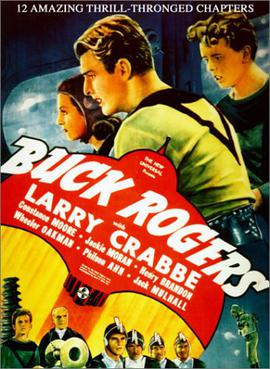Newsletter Issue 92 - October 2016
In this issue:
Yes, Virginia, there are Zombies!
Presidential election and intellectual property
Trademark adventures of Buck Rogers
Can delay block patent enforcement?
Yes, Virginia, there are Zombies!1
When you're dead, you're dead, right?
Not if your genes have anything to say about it. A team of
microbiologists from the University of Washington studied gene
activity in recently dead mice and fish.
They found that the activity of over 1000 genes increases after
death with the activity of some genes increasing as much as 24 and
48 hours after death. The genes with increased activity related to
stress, inflammation and development, among others.
So after you die, you're likely to be anxious, itchy and grow new
limbs. Zombie literature has it all wrong.
What do zombie genes have to do with intellectual property law? Not
a thing. Happy Halloween!
1 With a tip of the hat to the September 21, 1897 editorial in The
(New York) Sun
Ask Dr. Copyright ...
Dear Doc:
With the election just about a week away, can you tell me which
major candidate for President would be the best choice for creators
and owners of patents, trademarks, trade secrets, and copyrights?
Signed,
So Sick Of This Whole Thing
Dear So:
As a nonprofit (at least, not intentionally so...) the "Doc" is
prohibited from endorsing any particular candidate for office.
However, as a public service, the Doc has run a search using Google
to ferret out the relevant policy statements on the candidates'
websites, here presented for your perusal, consideration, and
enjoyment. The search string the "Doc" used is, "patent OR trademark
OR copyright OR intellectual OR property" and each campaign website
was reviewed for these terms.
In alphabetical order, here are the relevant results:
Hillary Clinton:
"Improve the Patent System to Reward Innovators: Hillary will enact
targeted reforms to the patent system to reduce excessive patent
litigation and strengthen the capacity of the Patent and Trademark
Office, so that we continue to reward innovators.
Effective Copyright Policy: The federal government should modernize
the copyright system through reforms that facilitate access to
out-of-print and orphan works, while protecting the innovation
incentives in the system. It should also promote open-licensing
arrangements for copyrighted material supported by federal grant
funding."
Gary Johnson:
"The purpose of government regulation is to protect citizens from
bad actors and the harm they might do to health, safety, and
property." Click here.
The "Doc" has seen television interviews where Governor Johnson
advocated immediate and complete elimination of the Department of
Commerce (which operates the Patent and Trademark Office), and when
asked what that department does, Johnson could not name any of its
functions.
Jill Stein:
Search returned no results.
Donald Trump:
"Use every lawful presidential power to remedy trade disputes if
China does not stop its illegal activities, including its theft of
American trade secrets..."
So there you have it. The "Doc" plans to vote early, keep it civil,
hopes that his candidate of choice prevails, and that the others
concede graciously in the interest of our nation and its traditions
of democracy. Above all, the "Doc" knows that our long national
nightmare will soon be at an end, and we will then be able to get
back to our obsession with the Kardashians...oh, wait...never mind.
Have some intellectual property that needs protecting? Need some
advice about using someone else's IP? The lawyers at LW&H are
strangely interested in such things, and they're good at it, too.
Give them a shout.
Until after the election...
The "Doc"
The Trademark Adventures of Buck Rogers
The Buck Rogers comic strip and its many spin-off novellas,
films, television series, and toys introduced Americans to the dream
and adventure of space travel. Legal conflicts over possession of
the rights to Buck Rogers have been more mundane but just as long
lived. The comic strip, which debuted in 1929, was developed by
Philip Francis Nowlan under contract with John F. Dille's National
Newspaper Service. The Nowlans and the Dille's have been fighting
ever since over the rights to the BUCK ROGERS trademark. Even today,
more than eighty years after Buck's first adventure, the heirs of
Dille and Nowlan are staking conflicting claims to the trademark.
Here's a brief look at one of the issues raised by recent litigation
between them in the Federal District Court for the Eastern District
of Pennsylvania.
A trademark is a source identifier, that is, it identifies the
source of goods and services. But can a trademark itself be a good?
In The
Dille Family Trust vs. The Nowlan Family Trust, Plaintiff Dille
asserted various claims of breach of contract, confusion, deception,
and false description among others. Many of these claims arose out
of Defendant's marketing scripts for use in future television
series, movies, and merchandising. In response, Nowlan filed a
motion to dismiss on various grounds, among them that Plaintiff
failed to a identify a "good" in relation to use of the BUCK ROGERS
mark in interstate commerce.
Under the Lanham Act (i.e., U.S. trademark law), to state a claim
for confusion, deception or false description, a plaintiff must show
among other factors that defendant's "use of the mark to identify
goods or services is likely to create confusion." Interestingly, the
Lanham Act does not define "good." For that definition we look to
the U.S. Supreme Court decision in
Dastar Corp. v. Twentieth Century Fox Film Corp., in which it
defined "goods" as wares, merchandise, and tangible products.
Trademarks themselves are not, however, tangible goods, which, as
the court in The Dille Family Trust case wrote, is consistent with
their purpose of protecting consumers from confusion about the
source of goods and services. The court concluded that the BUCK
ROGERS scripts that Defendant allegedly marketed were certainly
goods under the Supreme Court's decision but future movies or
television series - because they are intangible - are not.
So, there you have it. To state a claim for "confusion" under the
Lanham Act, you must allege confusion of the trademark as it occurs
in relationship to tangible products or services. By the way, in
case you were wondering, digital products may be considered goods
if, from the consumer's perspective, he or she sees a tangible
product in the digital media.
Can Delay be a Defense to a Patent Infringement Lawsuit?
In many areas of the law, excessive delay in pursuing a right can
be a defense in a later lawsuit. The defense is known as 'laches'
and is based on fairness - by delaying the litigation, the person
asserting the right has acquiesced in the other party's conduct.
Historically, the fairness-based laches defense applies only to
fairness-based remedies, like injunctions, but does not apply to
claims for money damages.
Consider the following example: Let's say that the owner of a patent
for adult incontinence products learns of an infringer and sends the
infringer a demand letter. The infringer responds that the patent is
invalid based on information supplied by the infringer. The
infringer does not hear from the patent owner for several years. The
infringer believes the patent owner has abandoned its claim and the
infringer spends substantial monies expanding its business based on
that belief. The infringer is mistaken. In the meantime, the patent
owner asks the USPTO to reconsider the patent based on information
from the infringer. The PTO concludes that the patent is still
valid. Almost seven years after the demand letter, the patent owner
sues the infringer for the infringement. Is the almost seven-year
delay in bringing suit a defense to patent infringement?
You guessed it, these are the facts of an actual case -
SCA Hygiene Products v First Quality Baby Products. In SCA
Hygiene, the en banc Federal Circuit Court of Appeals, said 'yes' -
delay in bringing suit is a defense, even to a suit for money
damages.
The SCA Hygiene case is now pending in the U.S. Supreme Court, with
oral argument set for November 1, 2016. We expect the Supremes to
reverse the Federal Circuit because, well, that's what the Supreme
Court does to the Federal Circuit and because we believe that the
Federal Circuit decision was incorrect. The Supreme Court should
decide in the first quarter of 2017.

